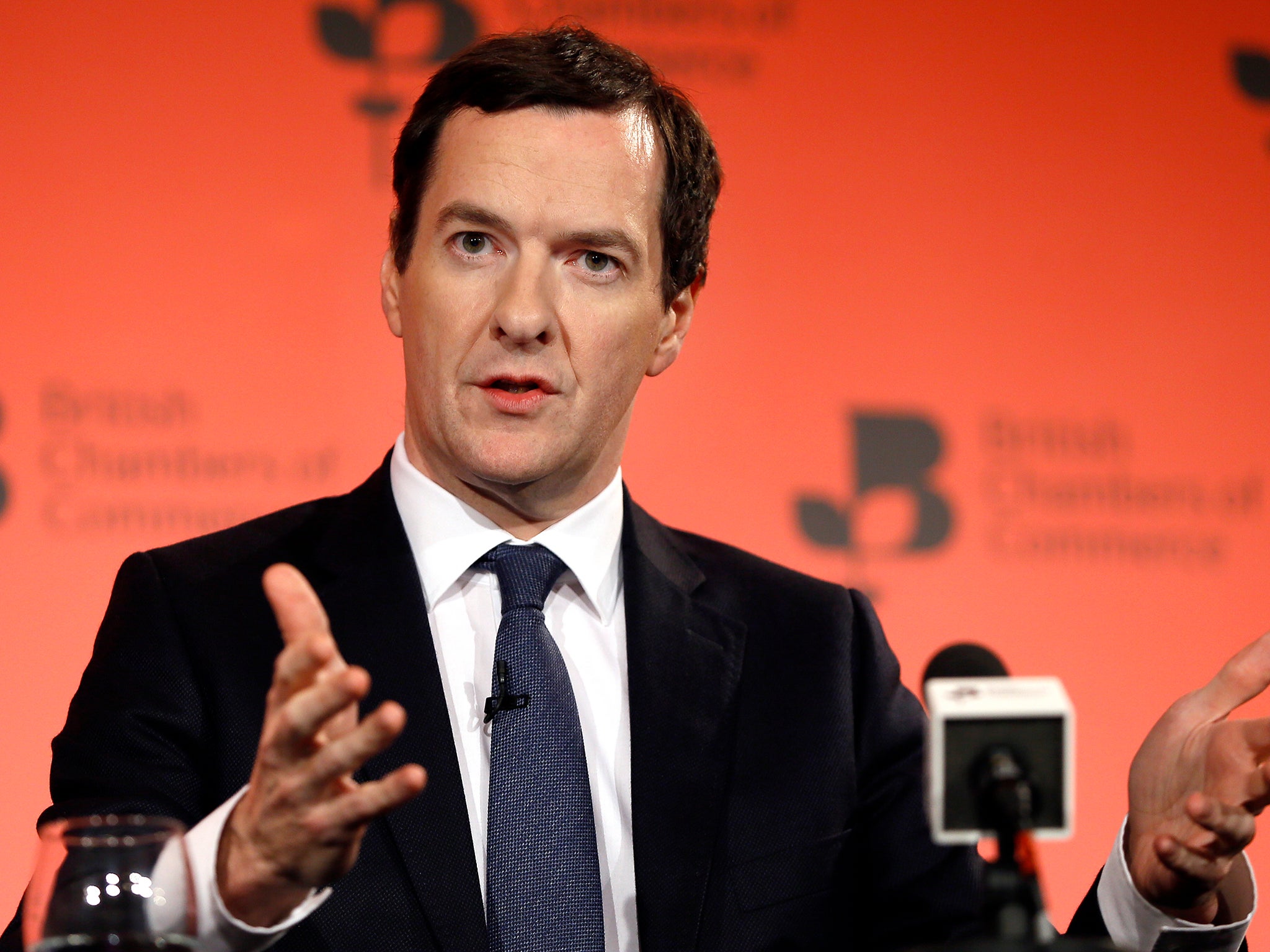This is George Osborne's toughest budget yet - because he's seeking the top job for himself
The Chancellor is likely to miss his targets. Despite nine years at the Treasury his country is still in deficit

Your support helps us to tell the story
From reproductive rights to climate change to Big Tech, The Independent is on the ground when the story is developing. Whether it's investigating the financials of Elon Musk's pro-Trump PAC or producing our latest documentary, 'The A Word', which shines a light on the American women fighting for reproductive rights, we know how important it is to parse out the facts from the messaging.
At such a critical moment in US history, we need reporters on the ground. Your donation allows us to keep sending journalists to speak to both sides of the story.
The Independent is trusted by Americans across the entire political spectrum. And unlike many other quality news outlets, we choose not to lock Americans out of our reporting and analysis with paywalls. We believe quality journalism should be available to everyone, paid for by those who can afford it.
Your support makes all the difference.In the post-crash world, all Budgets are tough but next week's is tougher than normal. The usual book-balancing problems facing George Osborne are compounded by the tricky political context - according to a new poll, Boris Johnson is significantly more popular among Tory selectorate who will choose next leader and Prime Minister. Does the Budget offer the Chancellor an opportunity to win back their attention?
It’s looking increasingly likely that the Office for Budget Responsibility will pose the Chancellor a dilemma. The consensus of independent forecasters is that growth in future years won’t be quite as strong as thought in the autumn. This means that the Chancellor will miss his target to close the deficit by 2019. That would politically be very difficult for him - not least because it means going into the Conservative leadership election with nine years at the Treasury and still a deficit.
Tacking right on deficit reduction would mean imposing another round of spending cuts at this Budget. That goes against a lot of advice from economists, but also means striking at budgets that cabinet colleagues thought were now settled for them to manage as secretaries of state. Negotiating new cuts with those who are lined up on the Leave side – Ian Duncan Smith, for example, at the Department for Work and Pensions, or Michael Gove on justice – won’t be easy.
Even if the Chancellor prevails though in making new cuts, this doesn’t resolve a bigger problem: he still doesn’t have any room to deliver the tax cuts promised in the Conservative manifesto. Specifically the manifesto promised to raise the personal allowance to £12,500 and the higher rate threshold to £50,000. Those measures taken together represent a chunky tax cut for those on middle incomes. The trouble is they cost something like £6bn per year. Giving up that amount in tax revenues will mean the Chancellor misses his deficit elimination target for sure. But then can he afford to go into the leadership contest without having delivered the tax cuts?
What else can he do? The Chancellor has strong centrist instincts. He's unafraid, as we’ve seen through the National Living Wage, of stealing moves from the soft left. He could recognise that his deficit target is too inflexible and that, given economic headwinds, the UK needs more infrastructure investment. He could unwind such investment from his target, giving himself the room to deliver the tax cuts. At the same time he could reassure Conservative hawks about his own fiscal rectitude by handing control over the money to the National Infrastructure Commission he recently created. Intriguingly, some of the top talent from the Treasury has recently moved there.
But Osborne's political problem remains – these are worthy but essentially technocratic measures. Boris and others have more compelling tunes which play to the Tory selectorate. We already see that in the EU debate where Gove talks about how the EU stops us from enjoying glorious heathland. Johnson suggests that to vote Leave is “to energise our democracy, cut bureaucracy, save £8bn a year, control our borders and strike new trade deals with growth economies."
Cameron’s comments this week - that he's not running for any other office so he can put the national interest first - were meant as a jibe against his biggest rival, Boris. But Osborne also has his eyes on the top job. Next week's budget will give some clues as to how he'll try to combine the roles of Chancellor and candidate for his party's leadership and the premiership.
Emran Mian is director of the Social Market Foundation
Join our commenting forum
Join thought-provoking conversations, follow other Independent readers and see their replies
Comments